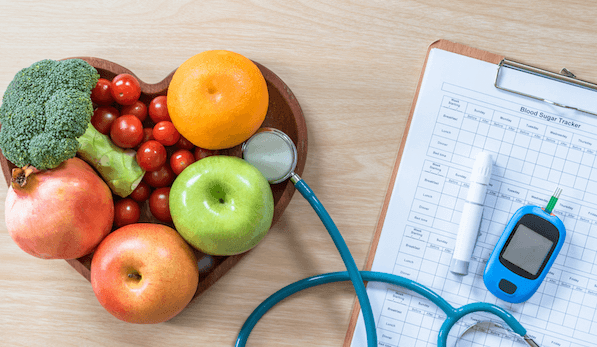Diabetes and Weight Gain:
In general, people who want to put on weight need to eat foods that are high in calories. Rather than following a restrictive diet and keeping calorie consumption low. Typically, people who want to put on weight need to consume more calories than they use.
However, people with diabetes also need to choose what they eat carefully as some foods may cause a peak in blood sugar levels, which could lead to health complications.
Anyone with diabetes who is considering making significant changes to their diet should speak to a doctor. A certified diabetes educator or a dietitian can suggest dietary adjustments that result in weight gain but do not damage health.
Importance of a Healthy Weight
When kids with diabetes reach and maintain a healthy weight, they feel better and have more energy. Their diabetes symptoms decrease and their blood sugar levels are better controlled. They also may be less likely to develop complications from diabetes, like heart disease.
Doctors use body mass index (BMI) to determine if a person’s weight is healthy. If your doctor recommends that your child lose weight to control diabetes, a weight management plan can help. Even if your child’s BMI is in the healthy range, the doctor can help you come up with a healthy meal and exercise plan.
How to break the cycle?
In a way, weight gain is a sign that the insulin is working — your body is utilizing sugar, fat, and protein more effectively and is able to store nutrients.
Typically, your appetite is increased when your blood sugars are higher. This is the main symptom of diabetes. When your body is utilizing nutrients better and is able to store them, food intake should be adjusted to maintain the same weight. You’ll need to make further adjustments if you’re attempting to lose weight. If food intake (both amount and types) isn’t adjusted, then you can expect to gain weight.
Also, insulin isn’t necessarily the only factor. When you’re managing your diabetes, your body has a better chance to rehydrate, which can also cause mild weight gain. Of course, dehydration is a greater risk if you have diabetes (frequent urination and thirst are two common signs of the condition).
Drugs you take for other conditions also sometimes cause you to gain weight.
So what are your options if weight gain and insulin are an issue?
Try these three brilliant tips:
1. Up the ante on diet + exercise
The most basic (and important) answers are adjusting your diet and exercise. Talk to your doctor and to a nutrition specialist about a food plan that takes the insulin effects into account. Work a bit more activity or exercise into each day. Sometimes, your insulin dosage should be adjusted (usually lowered) when exercising.
2. Take a closer look at your medications
Some medications for type 2 diabetes may cause weight loss, as a side benefit. You may discuss with your medical providers if using these medications is appropriate for you. And if used, how to adjust your insulin dosage.
The reverse is true as well. If you’re taking other diabetes medications with your insulin, find out if weight gain is a side effect of those medications too. Ask your doctor if another medication might be appropriate for you.
3. Work out the details with your doctor
The best thing a patient can do is ask questions. Make sure you understand all the reasons you might be gaining weight, what medications you’re taking that have that side effect and what alternatives are available.
Managing diabetes is a challenge, and your treatment plan has to work for you. Talk to your doctor and other healthcare providers and make adjustments until your plan is working well.
If you can effectively make the right lifestyle choices, you can minimize your need for medication. This means less cost, fewer side effects, and an overall feeling of well-being.
Conclusion
Although most people associate diabetes with weight gain, the condition can also lead to weight loss. This happens because the levels of insulin in the body are below the normal range, so the cells are not able to store glucose. This forces them to break down and consume fat and muscle in the body to get energy, which leads to weight loss.
By adding specific foods to the diet and exercising to build muscle, people with diabetes can safely gain weight. However, it is vital to discuss any significant dietary or lifestyle changes with a doctor before implementing them.









